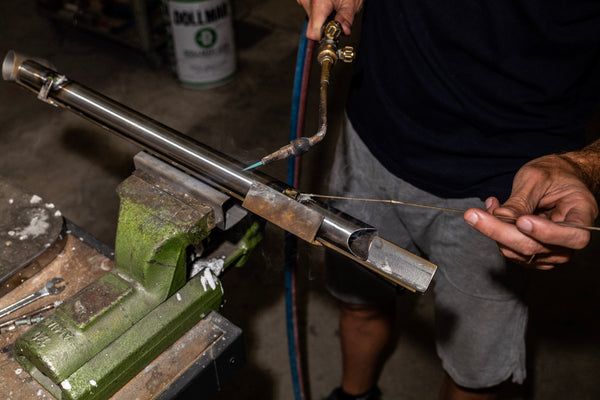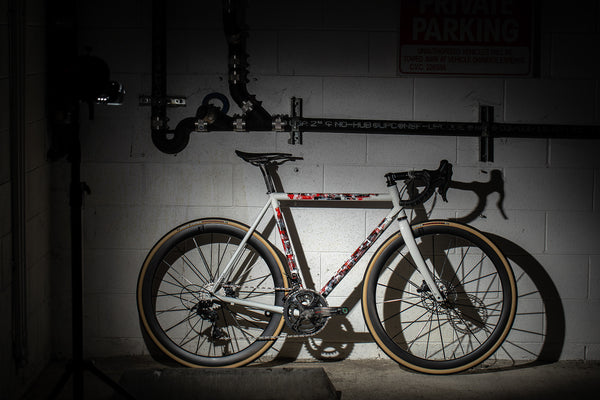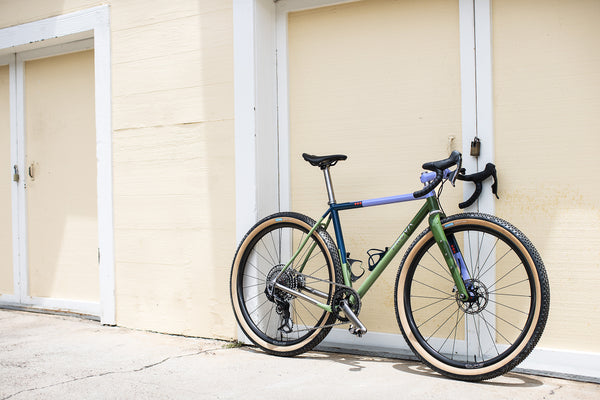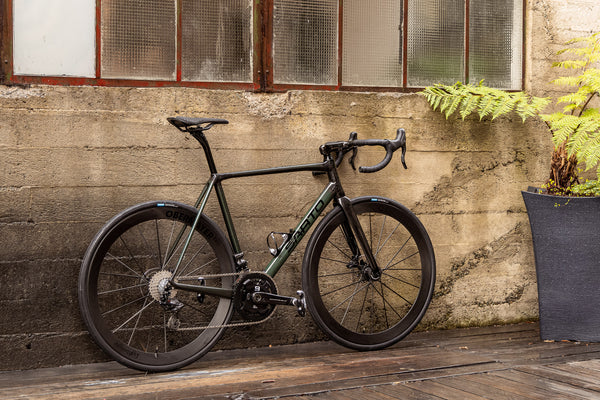I wanted to start today out with the obvious issues of sexualizing women for the purpose of selling bikes, and the typical cycling industry response to violating social norms utilizing said marketing.
But first, let's talk Artificial Intelligence. I've been seeing this flood into various social media streams over the past couple of days. The jist: Does Google (et al) program their self-driving cars to avoid plowing into a crowd of people, at the expense of the well-being of its occupant?
It's an interesting conundrum, this. Programming what's effectively morality and ethics into artificial intelligence, even in a limited pseudo black-white situation like the one illustrated above. In a broader sense, it's a harbinger of the Rise of the Machines. Or something. In a narrower one, and one that's a little more pressing, it's an interesting perspective that millenials everywhere (yours truly amongst them) are bringing to bear on the world at large: Assigning metrics and valuation to everything around us in an effort to squeeze out more efficiency, more juice from our empty grapefruits that have become our lives. It's present in phenomena like FitBits, OKCupid relationship probabilities, Strava-level urban planning, and cycling powermeters. Now, we're ascending a cornice there might not be any backing off of until it's collapsing beneath us. Putting numbers to one of the most innate, fuzzy, and basic human traits: The sense of right and wrong.
When you look at it obliquely, there's a certain realization of the power (enormous) that's assigned to whoever is programming the algorithms driving the Cars of the Future, no matter how ostensibly impartial they are, once the logical leap above is made. I mean, computers are, by their very nature, dumb. Dumber than your six-week-old puppy. More impressionable than your average American voter. They are a ball of Silly Putty, K'NEX, and a hydrogen warhead all wrapped into one, the ultimately malleable tool with temporally infinite potential. That's a whole lot of responsibility vested in the hands of folks accountable to little more than paychecks, Silicon Valley middle-management, and a "Don't Be Evil" corporate slogan. What if they were permanently scarred by a nasty encounter with a cyclist six years ago, and have programmed a bias against road users pedaling for time immemorial into the self-driving car of the future? But I digress, because that's not really my point.
Maybe I'm getting old, but this omnipresent data-driven mentality is above all, beyond scary, just depressing. When we can break everything down into a simple number, a simple metric, it loses its luster. It becomes less romantic, less relatable. The mystery is gone. Obliterated. It's why I love bike racing, even though it's one of the most (if not, short of powersports, THE most) data-driven sport on Earth, with wannabe blowhards proclaiming "could've been pro" status from wattage statistics having never pinned a number on. Yet, at the end of the day, in relatively short, spontaneous contests (see: Classics, brief stage races, and your run-of-the-mill local race or group ride), insane variability, emotion, and human instinct can drive the numbers demon from the room. It's why my love of the sport has migrated from a healthy appreciation for recovery-and-TSS obsessed Grand Tours to being riveted to the races of March and April. Who's winning Paris-Roubaix? Hint: Circa-2011, it wasn't anyone mentioned here. It's part of what makes bikes special, and it's why I don't get caught up in the gains, grams, and aero drag much anymore. Do I smile wide when I ride this bike? Does it make me tickle inside like new love when I see it lurking in the corner of the garage? Does it make me want to go fucking fast? If the answer to any of these questions is yes, everything else is welcome to shove it.
In a move of monumental cluelessness, Colnago last week faux-pas'd to the nth degree when it comes to cycling advertising. Not to be outdone, SIDI upped the ante - in print, with Peloton's advertising editors letting it slide by into issue 45. Apparently, Italy hasn't gotten the memo that the Marzocchi Bomber Girls are so 2003.
Let's take a quick account of the situation. Cycling has long absolutely, terribly, utterly sucked at attracting half of humanity (read: Women) to the sport. A sport that's all at once thrilling, enjoyable, accessible, social, and marketable, more than most others. Why? This is bicycling, the rudimentary, bionic marriage of organic and mechanical, a Victorian amalgamation of man and machine. Or, as William Saroyan once deemed it, "The noblest invention of mankind."
I'll gloss over the obvious issues within racing, not because they don't matter, but because no one cares. Not that no one cares about women's cycling in particular, but that no one cares about racing. It's a sideshow, and ultimately a socially irrelevant sideshow that I've gleefully partaken in for years prior. Let's talk about what really matters - making access to cycling culture viable by a female, and not just access, but ownership. Things I've illustrated above aren't just offensive to a market demographic, they're downright barriers. They send a fairly clear message that not only propagates a culture of sexualizing women around bicycles, but also presents obstacles to them, obstacles that prevent them from becoming involved in our industry, in our culture. What kind of message does it send when our marketing for fairly universal products like footwear and frames is very obviously exclusionary? The fix isn't easy. It's not something that a marketing campaign, a charitable initiative, or a race team is going to solve. Not overnight. It's organic, it's homegrown, and it starts with calling out the shit slung by companies like Colnago and SIDI that I've illustrated - by men. Men in the industry, so when an ad like the SIDI one slides across an editor's inbox or InDesign artboard, loud alarm bells go off, revisions are made, and ultimately, the old guard learns. Or dies.
I don't care how big of a fan of boobies you are, how much you love scantily-clad women on bikes, or what your sexual preferences are. No, I'm not anti-sex crusader (yes, like every other male teenaged mountain biker in the early 2000s, I once dreamt of dating Niki Gudex), but even if I can't make a moral and ethical argument that resonates, at least hear me out for a financial one. Our industry is stagnant. Rotting from the inside out. The growth is out there, in the half of the populace we utterly ignore and exclude, but if we continue down this path we are doomed. It's in our own best interest to include the other half of the world, perhaps by appealing to them like human beings with similar human tastes instead of like perplexing case-studies in belittlement. There's a few companies that have started successfully paving their own road, and most have (shockingly) been at the forefront of general industry marketing for the past half-decade. Rapha's events, marketing, and content encouraging riding amongst women are second to none. Machines For Freedom is a women's-centric clothing brand with aesthetic, language, and design for this decade. Orbea, unheralded in the American market since Euskaltel-Euskadi faded, has been quietly championing women's racing (sidenote: Luna is one of the only teams backed by an enormous women's outreach program) and logical unisex sizing for the better part of the 2010s. I'll never claim to be exactly correct, but these are examples to learn from, for all of us.
At last, it wouldn't be late fall without more transfer news. Juan Pablo Villegas is the strongest man you've never heard of. With an engine like Fabian Cancellara and extreme mental discipline like the Dalai Lama, he is the epitome of a perfect bike racer (who's also won the Vuelta Mexico). And, for a Colombian, he's enormous. A towering six feet tall! After spending a good deal of my spring with JPV on Smartstop, I also came to know him as one of the kindest, gentlest guys around. That's why it shattered my heart when, after an interview he gave while staying with me in the U.S., he was forced into an early retirement from the sport in July after calling out domestic Colombian cycling for its ongoing doping sins. One of the world's best cyclists, relegated to picking coffee beans.
Happily, the forces of good have transpired, and Juan Pablo has re-signed with his former team in Colombia, Continental-level Manzana Postobon, for 2016. You might better know the team as the 2011-era Pro-Continental Colombia es Pasión, the progenitor of riders like Nairo Quintana, Esteban Chaves, and Jarlinson Pantano. They're also commonly known as the outspoken anti-doping beacon in the South American cycling mecca, the equivalent of America's Slipstream Sports in 2007.
The genial, indomitable son of the coffee farmer will ride again, and hopefully I'll have a chance to return to Medellín this winter for more feats of strength, getting the spins in a velodrome, and eating frijoles verdes prepped by his mama.















Back to Journal